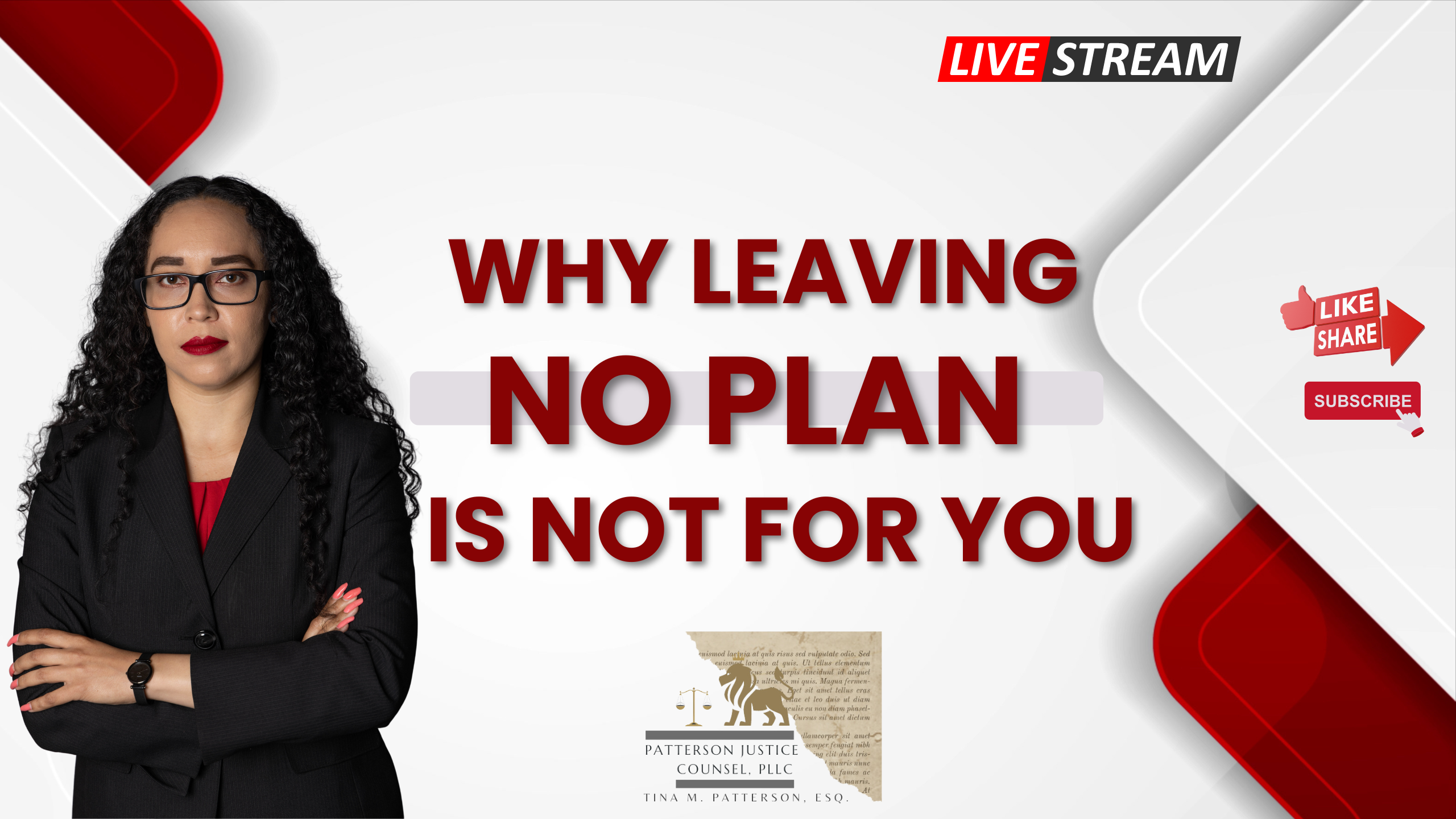Why Leaving No Plan is Not the Plan for You
Are You in Control, or Are You Giving Away Control?
Are you designing your future, or are relying on the default to design it for you?
When it comes to estate planning, if we do not design our own plan, there is a default option that is always available and always automatic. So even if you think you are avoiding the obligation to leave a plan behind or don’t want to be involved in administrative mess, etc., you are still leaving something to sort through, and it can be much worse than if you had taken the time and effort to do it while you are still alive. Why? Because now, others are literally trying to dictate your will without your input, and the default, state plan goes into effect without any say so from you.
Continue reading below and/ or watch the video to learn about three consequences of opting out of designing your own plan and automatically falling into the default plan:
Leverage your estate to the State
If you don’t design your estate plan, the default plan will take over, and the default plan is set by the state, meaning the government. I can speak on this as a licensed attorney in the State of Michigan, but every state has their own laws about distributing property after death. You may know it as the probate process, when you go to court to figure out what to do with what after someone dies. At times, going with the probate process may seem okay enough, that at least it’s going somewhere, but that is not always the case.
First of all, the history of this country is full of conflict against the government when it comes to our personal freedoms, such as freedom of speech, religion, and our basic constitutional freedoms. From the Boston Tea Party to the Civil War, and the movements that demanded more from our government, such as the Civil Rights Movement, we are a people very well known for shaping what we want from our government. From this point alone then, why are we okay allowing our government to take over to tell us what to do with our property when we are gone?
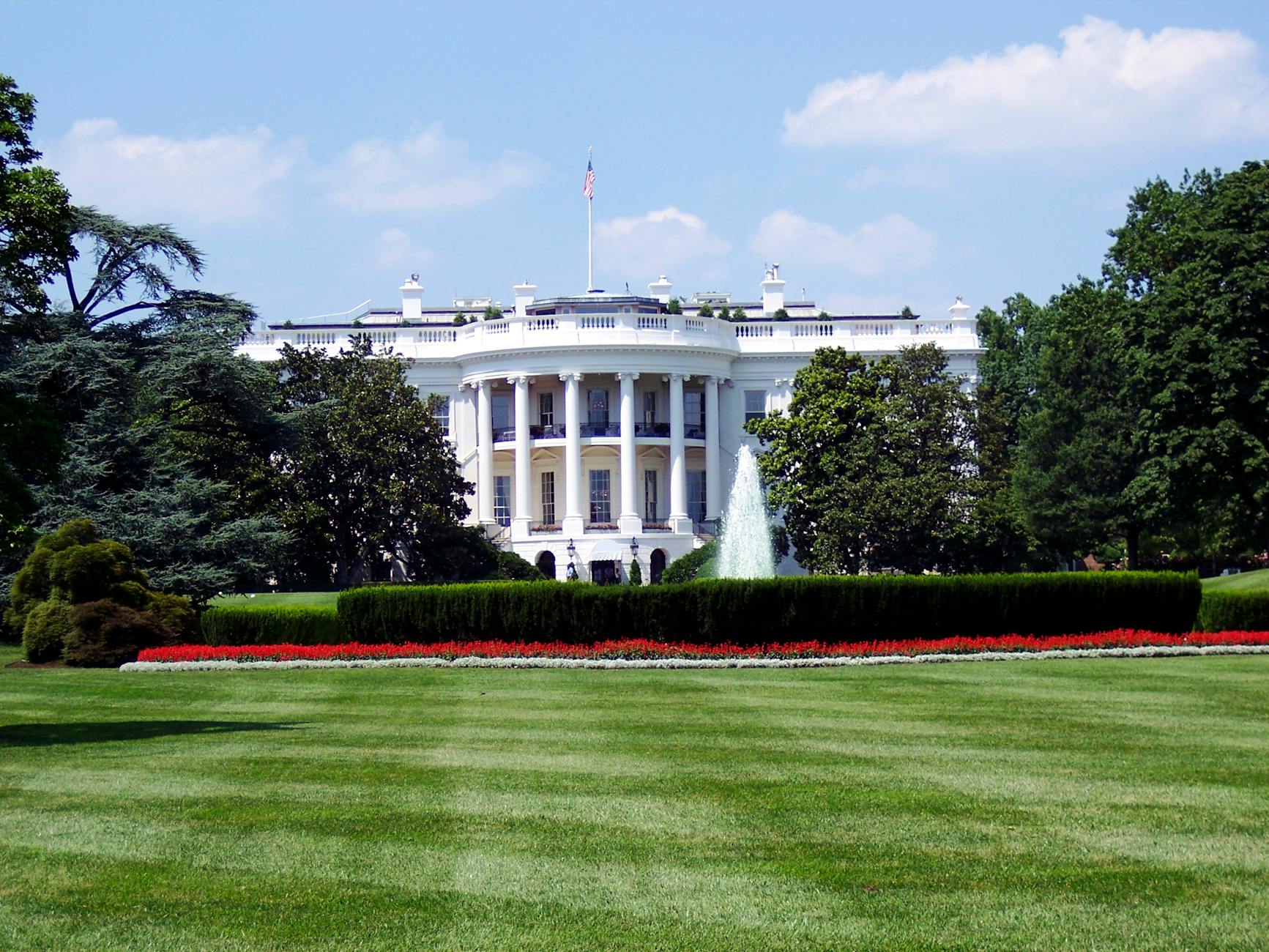
We know we can’t live forever and take anything with us when we are gone, but we most certainly can determine who we want to leave it to and how, by designing our own plans for it, instead of allowing the default government plan to rule.
While the default often does include leaving property to closed loved ones (or heirs, next of kin) like spouses, children, parents, etc., this does not mean this is our wish. Often, family conflicts exist between children and parents, or the designated heir may not be age of maturity (still a minor), leaving a massive fortune to someone who is ill-equipped to take control.
This also goes for adult heirs who have developmental disabilities or mental deficiencies that will not allow him or her to take over in their own power. This may also cause other probate processes to be involved, such as guardianships and conservatorships, which are used to handle the affairs of others unable to take care of it themselves, such as children and disabled individuals, which may cost even more time and money in the end than designing your own specific time to cover these issues.
Additionally, many families deal with loved ones with substance abuse issues, gambling problems, and many other very delicate, sensitive issues, that would corrupt or impede their ability to handle taking care of business and maintenance of more responsibility. However, with a default plan, the heir will likely take over and the entire estate left up to chance.
Don’t gamble with your future in this sense. having no plan can do you and your legacy, your generations to come, more harm than good. Take the time, effort, and resources to make a responsible plan, and review it often, to avoid the default to control what you worked so hard to gain.
Leave out the ones you’ve loved and cared for
In addition to the default plan not only taking control, but giving to those unable to manage, it also has the ability to leave out loved ones you cared immensely for in life, but do not fit within their statutory rules (their laws) to inherit anything. This include precious loved ones like the grandbabies, nieces, and nephews, along with lifelong friends and neighbors, also churches and favorite charities, and even pets (yes, that’s a whole area of law in and of itself).
The point is, if the person is not related to you in what I call down up and across (children, parents, siblings), they are likely to be left out entirely, even if you cared for them and supported them your entire life.
This also includes stepchildren. They do not inherit according to state law (here in Michigan, and perhaps other states as well), if the step parent did not officially adopt them as a child. I have seen cases where even though there was an agreement between the parties to distribute funds to stepdaughter, the judge ruled against that provision because stepchildren cannot inherit by law if they were never adopted.
And this goes for other types of relationships as well, such as grandchildren raised by grandparents, but never formally adopted, nieces and nephews raised by aunts and uncles, etc. All the children may have grown up together in the same home, raised by the same parents, but if they are not “legal” or “official,” they get left with nothing. That is if you go by the default plan.
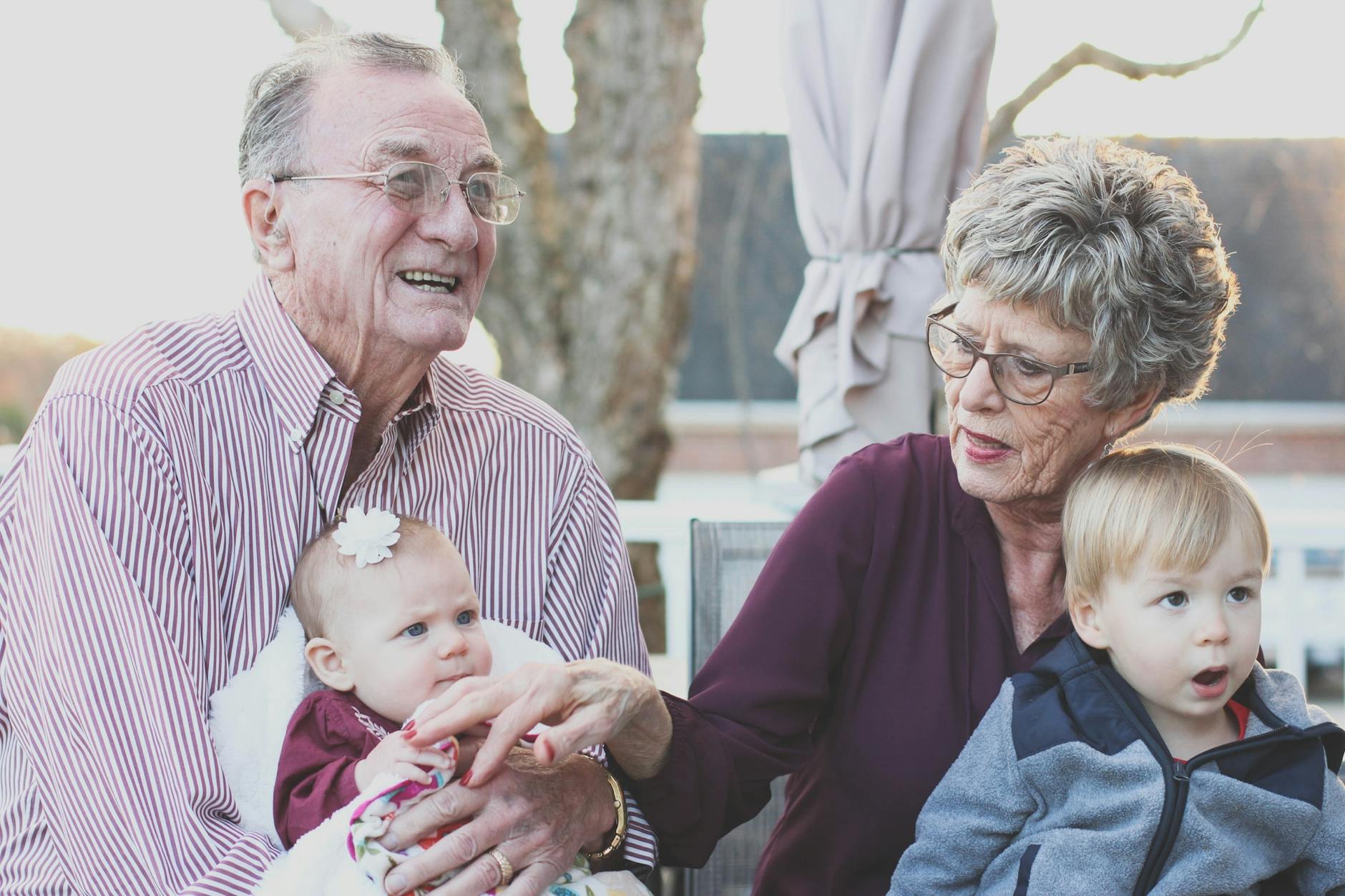
In contrast, taking control and leaving a plan by design, by your design, allows you to include those loved ones as equals. Also, by design, you can leave something for close friends who’ve become family, neighbors, as well as organizations you may have dedicated your life to, such as churches and favorite charities. It is not uncommon for churches to inherit homes and other great resources, but it is not automatic. It must be done with purpose, by design. The default does not allow for this, so keep this in mind when thinking you’ll get around to making that plan later on, and for too many, later never comes.
Lose family property for generations
Finally, we get to the worst of the worst of what can happen when you don’t take control and leave the plan to the default hands of the State: Everything will go back to them. Yes, you read that correctly.
If no heirs have been identified, if no will was ever taken to probate court, etc., then there is an endgame, a final heir for the property- and that is the state. The legal term is “escheat,” meaning property will return to the state. And once it’s in their hands, you can lose it forever, which means property is lost to the generations.
This is not just theory, this can and does happen. I have personally seen it happen in a case here in Detroit, where a mother died tragically, young too, only in her mid 40s. She left behind a child of whom she had sole custody, and also had a house. Of course, the care of the child was priority, so an aunt formally adopted the child, but no one ever did anything about the house. No case was opened in probate court. No one stepped up to at least pay the taxes or keep the bills updated. Nothing. Well, again, the default is always available, and it’s always automatic. The default kicked in, the property ended up returning or being reverted to the state, and the state tore it down.

Where a home once stood that hosted family dinners, provided shelter for two families (it was a two family flat), is now nothing but a flat, empty, open, vacant lot. Worst of all, the child, now a grown adult, become married and had a child years later, so the home was lost to two subsequent generations, leaving that child to start over from scratch instead of starting and standing on a strong foundation.
Conclusion
These are only three examples of what can happen if you fail to actively design your own plan to manage your affairs when you are no longer here to do so. These are real life scenarios, nothing made up.
If you would like to learn more, we have a free video training you can download titled “7 Disasters Waiting to Happen If You Don’t Take Control of Your Estate Now.“
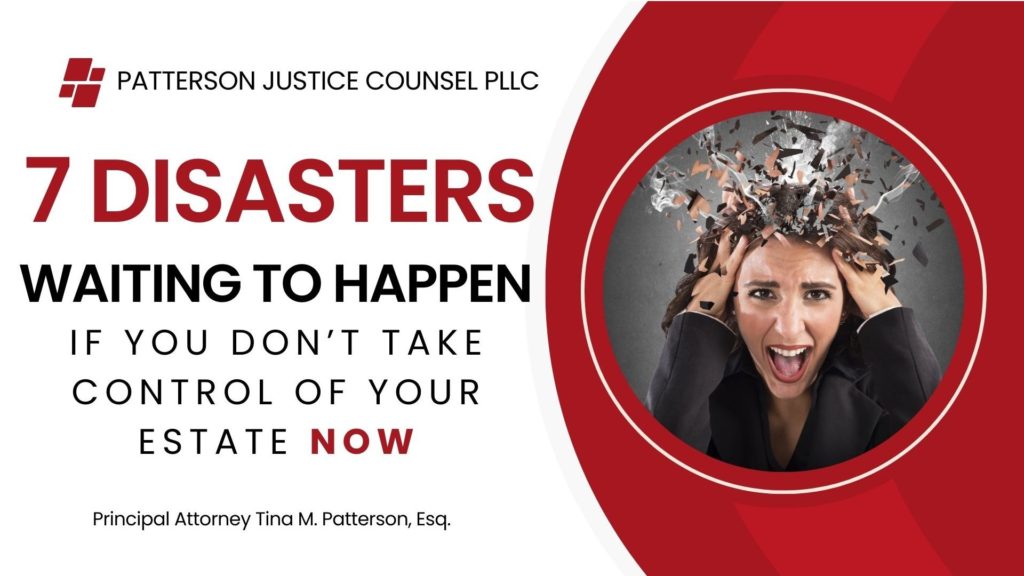
And if you are really ready to take action and invest in your family’s future so these mistakes don’t cost your legacy, you can take advantage of our on demand, online masterclass titled “Secure Your Legacy.”
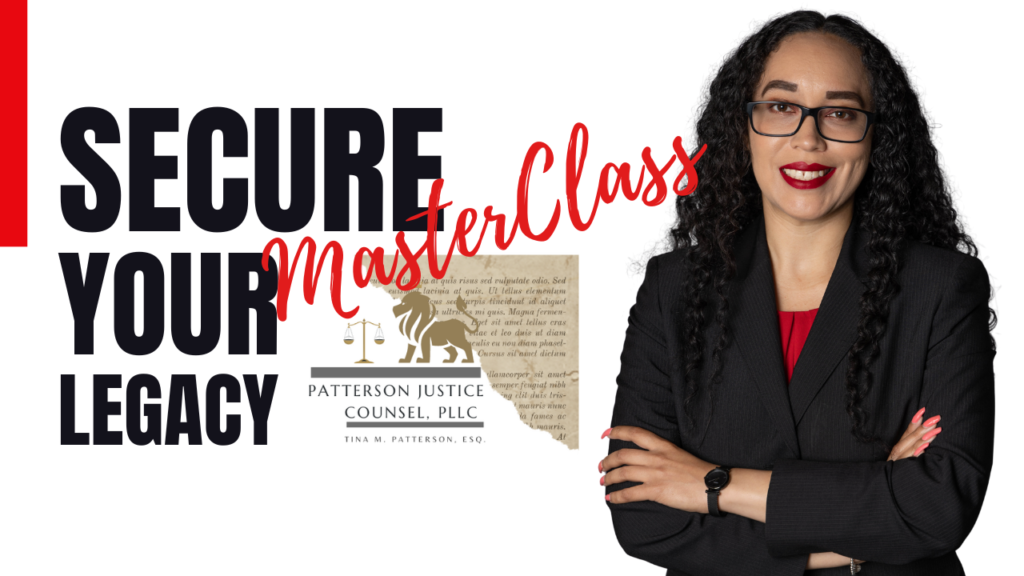
In all honesty, I do this work because for me, it’s all about leaving the next generation with more than what we have. More opportunity, more freedom, more resources, more wisdom, more instruction, more progress to build upon for generation after generation.
It’s never going to be perfect, but that doesn’t mean we can’t start anyway. In the words of the late former President John F. Kennedy in his lauded 1961 inauguration speech, when laying out his vision for his administration’s legacy:
“All this will not be finished in the first one hundred days. Nor will it be finished in the first one thousand days, nor in the life of this Administration, nor even perhaps in our lifetime on this planet. But let us begin.”
Begin today. Begin with the end in mind, even if you never get to see it for yourself.
Attorney Tina M. Patterson, Esq. is a distinguished attorney who is the Principal Attorney of the esteemed law firm Patterson Justice Counsel, PLLC.
As a veteran legal practitioner, Attorney Patterson leads clients on the transformational journey of becoming the legacy pioneers of their generation through properly and appropriately planning, preparing, protecting, preserving, and passing their wealth and wisdom for the benefit of succeeding generations. Patterson also helps clients navigate the difficulties presented by legal challenges and effectively advocates for them when confronting conflicts in the complex court process.
To follow for more information or contact for legal assistance, click below:
